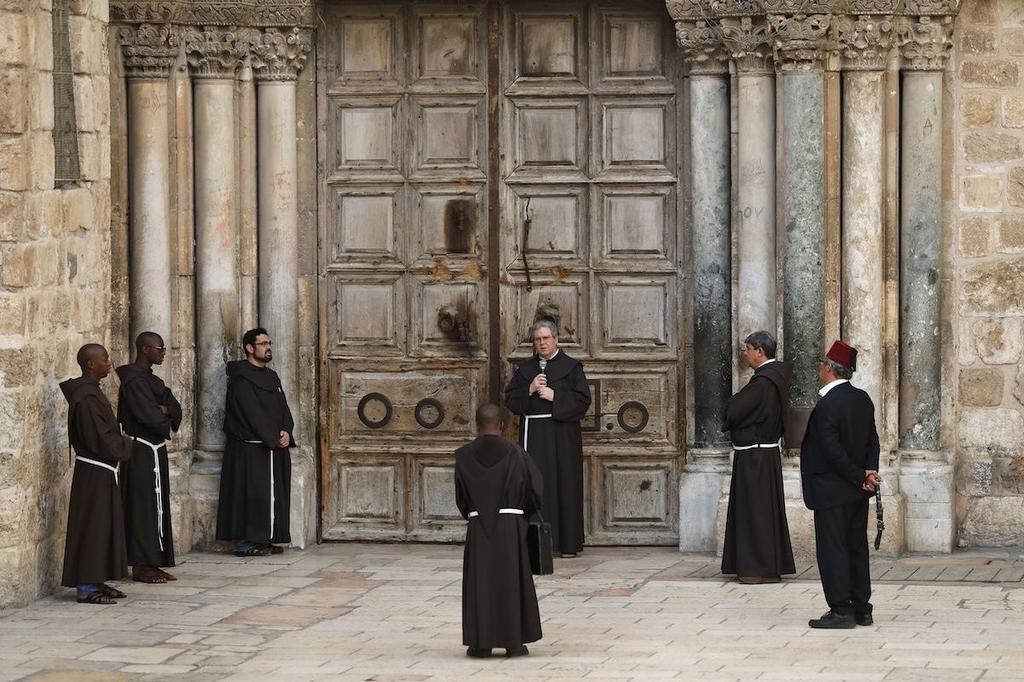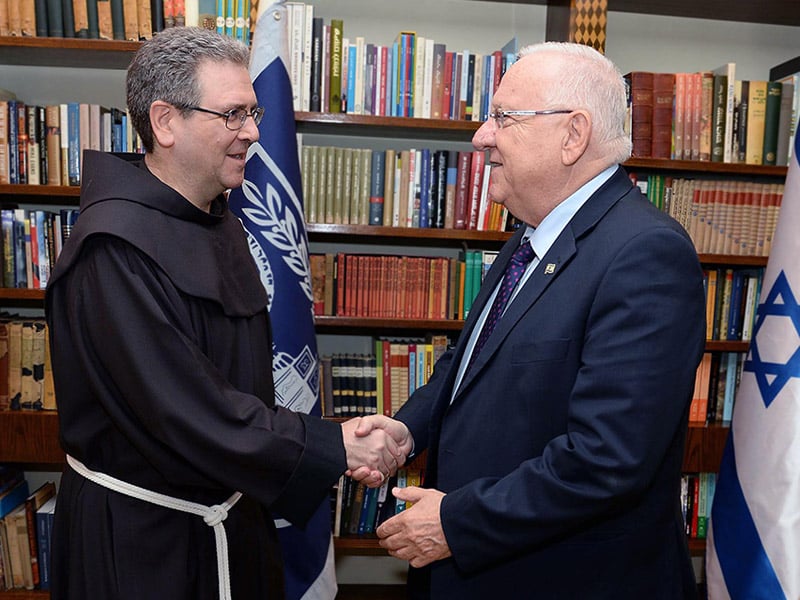Getting your Trinity Audio player ready...
Easter celebrations should be permitted inside the Church of the Holy Sepulchre in Jerusalem, even if only by a small number of clerics abiding by anti-coronavirus guidelines, a senior clergyman said on Wednesday.
Father Francesco Patton, a Franciscan friar who is the Custos of the Holy Land for the Roman Catholic church, urged the Israeli government to allow freedom of worship at the site which is the focal point of Holy Week.
2 View gallery


Franciscan monks pray in front of the closed door of the Church of the Holy Sepulchre
(Photo: Gettyimages )
Israel has imposed tight restrictions on public gatherings to curb the spread of the virus, on Monday barring gatherings of more than two people who are not in the same family, with few exceptions.
With Easter approaching, the Greek Orthodox, Armenian Orthodox and Roman Catholic authorities who share custody of the Holy Sepulchre issued a joint statement last week saying prayers "will continue" at the traditional site of Jesus' crucifixion, burial and resurrection.
But discussions continue about how to ensure safety and continued worship during the most important festival in the Christian calendar, which Catholics celebrate on April 12 and Greek Orthodox a week later.
"I think that at this moment our community living in the Holy Sepulchre has the duty and the task to pray in this place for all those who are living around the world," Patton told Reuters.
"We think that to pray is not something useless, we think that it is something that can really change the situation."
The Holy Sepulchre lies at the heart of the Christian Quarter of Jerusalem's walled Old City. Its doors were shut to the public on March 25.
Patton said it would be impossible to carry out the annual Palm Sunday procession in Jerusalem on April 5 in anything like the normal manner, with thousands of pilgrims walking from the Mount of Olives to an Old City which now lies deserted.
2 View gallery


President Rivlin with the Custos of the Holy Land, Father Francesco Patton
(Photo: GPO)
But he said services could be filmed and live-streamed worldwide for those unable to attend, and held out hope that the bishops of each church would be able safely to mark the "most important" celebrations.
These include Good Friday, Easter Sunday and the - usually - crowded Greek Orthodox ceremony of the Holy Fire, symbolizing the resurrection.
"We have to give to Caesar what is of Caesar and we have to give to God what is of God," said Patton. "We respect what is the role and what is the duty of the public and civil power and at the same time we think that the different civil authorities have to respect what is the right of God."
Israel has imposed a partial lockdown, with police and soldiers enforcing the Ministry of Health's restrictions requiring people to stay near their homes. Religious leaders of other faiths have also taken precautions.
Islamic authorities last month suspended all Muslim prayers around Al-Aqsa Mosque.
At the Western Wall, up to 10 people are permitted to pray with worshippers keeping 2 meters apart. But the chief rabbi of the site instructed them not to kiss the stones.
Police spokesman Micky Rosenfeld said it was too early to know the arrangements for upcoming religious holidays of all religions.
"It all depends on the health regulations," he said. "If the situation is going to be the same with no public gatherings... nothing will be going on, not Passover, not Ramadan and not the Holy Fire ceremony. We will have to wait and see."

